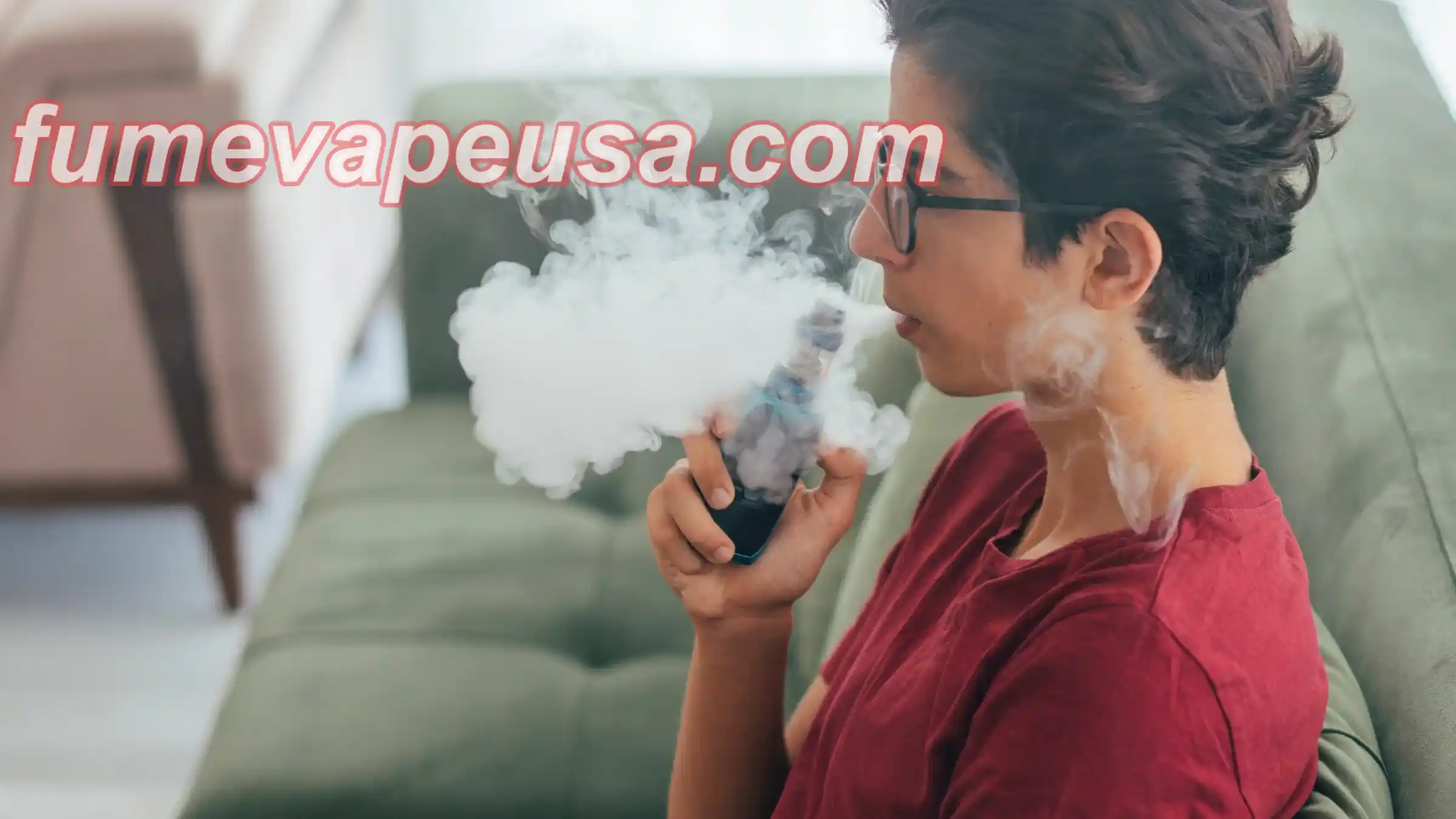Mexico's Constitutional Ban on Vaping: A Game Changer for the Industry
Mexico's Constitutional Ban on Vaping: A Game Changer for the Industry
In an unprecedented move, Mexico is on the brink of becoming the first country in the world to enshrine a vaping ban directly into its constitution. While it may seem a bit over the top, this measure is designed to make it nearly impossible to reverse the ban in the future. The legislation, which seeks to prohibit the sale of vapes (though not their use or possession), has sparked significant debate, with a major vote in the Mexican Congress signaling a potential shift in the country’s stance on vaping.
The Push for a Vaping Ban: A Political Power Play
Last week, the lower house of Mexico’s federal congress (the Chamber of Deputies) overwhelmingly passed a bill that would ban the sale of vapes, with 410 votes in favor and just 24 against. This measure is set to receive a vote in the Senate later this week, where it’s expected to pass with a two-thirds majority. If the Senate approves, the bill will then need to be ratified by the legislative bodies of all 32 states in Mexico before it becomes official. This ambitious plan is part of a broader attempt by the government to address the health concerns associated with vaping, which has become a serious issue, especially among younger Mexicans.
The constitutional amendment is a major shift, as it will amend Article 4 of Mexico’s constitution, which guarantees the right to health for all citizens. By locking the vaping ban into the constitution, any future attempts to reverse it would require a huge political effort, essentially putting the issue out of reach for years, if not decades.
This aggressive move comes at the tail end of President Andrés Manuel López Obrador’s presidency. The charismatic and often controversial leader of the National Regeneration Movement Party (MORENA) has been a staunch advocate for this policy. López Obrador’s administration passed two executive orders earlier that restricted the importation and sale of vapes, though those orders were challenged in court and could have been overturned. To solidify the ban, López Obrador proposed the constitutional amendment, making it harder for any opposition to reverse the decision in the future. How to find the best quality vapes? fume disposable vape recommends the best for you!
His successor, Claudia Sheinbaum, who took office in October, has vowed to continue with the policies initiated by López Obrador, including the stringent vaping laws. This constitutional amendment is one of many sweeping changes being made by the current administration, which has also moved to restrict the independence of the judiciary and curb the power of the Mexican Supreme Court.
The Black Market Boom
While the government is pushing to make vaping illegal in the public and commercial spaces, Mexico already has a massive underground market for these products. Despite the ban, it’s estimated that nearly 2 million Mexicans are currently using vapes, which are widely available through illicit channels. This has created a situation where the vaping market is effectively being handed over to Mexico's notorious drug cartels, who control large parts of the country’s underground economy.
Interestingly, the new law doesn't target traditional cigarettes. According to data from the Tobacco Atlas, approximately 16.5 million Mexican adults smoke, a rate of about 18%. So, while the government is cracking down on vapes, it’s still leaving traditional tobacco products largely untouched. This glaring inconsistency in policy has raised questions about the effectiveness and fairness of the government’s approach to regulating nicotine products.
If the bill passes, Mexico’s black market for vapes is likely to expand even further. Cartels, which are already involved in drug trafficking and smuggling, are likely to seize the opportunity to sell vapes alongside their other illegal goods. This would not only make the situation more dangerous but could also complicate public health efforts in the long run.
What the Law Means for Manufacturers, Retailers, and Consumers
For vape manufacturers, this law represents a tightening of already strict regulations. Mexico has long had stringent rules regarding the production and sale of vaping products. Those who break these rules face heavy penalties, including hefty fines that can reach up to $8,000. Advertising and promoting vape products is also highly restricted, which means manufacturers have to tread carefully or risk serious financial consequences.
Retailers and distributors are facing similar hurdles. Only those involved in legal disputes related to the ban are allowed to sell vaping products. This means that businesses must first initiate a legal battle to have the ban lifted before they can resume sales. On top of that, retailers are prohibited from selling vapes to minors, with fines as high as $2,000 for violations. As the law stands, legal disputes are expected to drag on for a long time, costing retailers both time and money.
For consumers, the situation is more complicated. While it remains legal to possess and use vapes for personal use, the importation of these products is strictly limited. Anyone caught using a vape in public places is subject to fines, and the law mandates that personal use can only occur in designated smoking areas. As the legal landscape continues to shift, consumers will need to stay up-to-date with the ever-changing regulations to avoid running afoul of the law.
A New Vape Law for 2024
As 2024 rolls in, more changes are set to impact the vaping industry in Mexico. The government has announced new regulations that will redefine how manufacturers, distributors, and retailers can interact with vaping products. These changes are expected to increase oversight on the industry and impose even more stringent rules on everyone involved.
Licensing and Permits
Retailers will now be required to meet even more stringent criteria to obtain a license to sell vaping products. They must demonstrate that they are in compliance with safety and health regulations, and they must ensure that their establishments are suitable for selling such products. If retailers fail to meet these standards, they could face penalties, including the refusal of a sales permit.
Distribution Guidelines
Distributors will also be subject to strict guidelines. To legally distribute vaping products, they will need to register their business with health authorities and maintain detailed records of transactions. This is to ensure that products are traceable and that distributors are complying with all relevant laws. Any violations of these distribution laws could result in severe penalties, including the suspension of licenses.
Product Standards and Restrictions
One of the most important aspects of the new law is the strict control over what ingredients can be used in vaping products. Only certain approved ingredients can be used in the manufacture of e-liquids. Ingredients that are likely to attract minors, such as candy-flavored additives, will be banned. The use of unapproved chemicals in vaping products will also be prohibited, and any violations will lead to confiscation and potential legal action against manufacturers. Can‘t find the right vape? fume vape price helps you customize the perfect experience!
Packaging and Labeling Guidelines
The new laws also impose tough regulations on packaging and labeling. Every vape product must come with clear health warnings about the risks of using nicotine and other substances. The labeling must also list the exact nicotine content and other key ingredients. False or misleading labeling is strictly prohibited, and companies that violate these regulations could face serious penalties, including the seizure of products and fines.
Marketing and Advertising Regulations
The marketing and advertising of vaping products will also be highly restricted. Advertisements must not target minors or suggest that vaping is a safer alternative to smoking. It is illegal to promote vaping products in public spaces, such as billboards or public transport. All promotional content must include clear health warnings, and marketers must be careful not to appeal to younger audiences in any way.
What Does This Mean for the Future of Vaping in Mexico?
As Mexico moves closer to passing this landmark legislation, the future of the vaping industry in the country seems uncertain. While the ban may reduce the number of smokers turning to vapes, it could also push the market further into the hands of organized crime, creating new challenges for public health and law enforcement.
For consumers, the new laws could mean increased difficulty in accessing vaping products, but it might also reduce the visibility of vaping in public spaces, making it less of a social trend. As always, it’s important to stay informed about the changing laws and regulations to understand how they could impact your choices and rights.
The next few months will be crucial in determining the ultimate direction of Mexico’s vaping industry and whether this bold step toward a constitutional ban will be as effective as the government hopes. With growing international interest in this issue, all eyes are on Mexico as it takes this controversial step in its fight against vaping.
